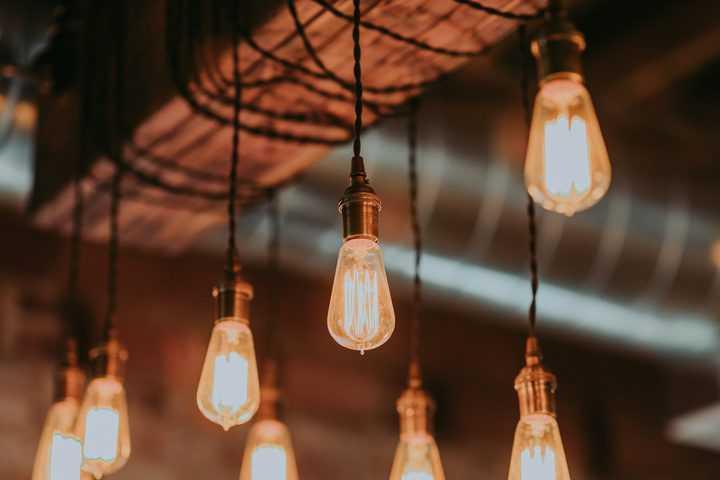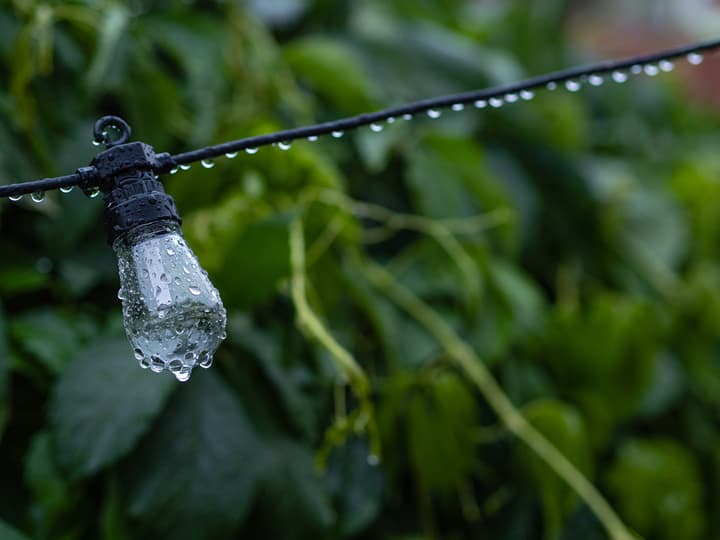If you live somewhere where the summers are significantly more pleasant than the winter months, you might decide to bring some of your outdoor lightings indoors for the colder seasons.
You may not have to – most outdoor lights are designed to be kept outdoors and will be waterproof, but it’s not just the rain you need to worry about.
You are watching: Can Outdoor Lights Be Used Indoors?
Often winter brings high-speed winds, so you might just enjoy the extra peace of mind by having them inside until you want to use them again.
But do they need to sit in a box doing nothing, or can you also use outdoor lights indoors?
Outdoor lights can be used indoors provided they’re designed to work on standard voltage mains power, or if you use a transformer if they’re low voltage. Outdoor lights may be brighter than indoor ones since they’re designed to be used in larger outdoor spaces. Bulbs designed for outdoor use can be used indoors in any matching fixture.
By the end of this guide, you’re going to understand:
- The differences between indoor and outdoor lighting
- Whether outdoor lights can be used indoors
- Why you wouldn’t want to
Difference Between Indoor And Outdoor Lighting

Before we compare indoor and outdoor lighting, we need to make the definition between light fixtures and light bulbs.
Because you can get outdoor light fixtures, and you can get outdoor light bulbs, and the story is slightly different with each.
Indoor vs Outdoor Light Bulbs
Outdoor bulbs are the easiest comparison. There are two main differences between indoor and outdoor light bulbs – an outdoor light bulb will be waterproof and will likely (but not always) be brighter.
Outdoor lights need to be waterproof because they’re exposed to the elements.
Rain is a big danger for outdoor lights since any water getting into the circuit can cause it to short, which turns the light into a hazard.
If a small amount of water gets into the bulb and the temperature drops, it’ll expand as it freezes and potentially crack or break the bulb.
And outdoor lights tend to be brighter than their equivalent indoor ones because they’ve got to illuminate a wider area, and there are fewer surfaces to reflect the light.
Even if your patio is the same dimensions as a bedroom, in the interior you’ve got four walls to reflect the light inwards, while a lot of that luminosity is lost outdoors.
Indoor vs Outdoor Light Fixtures

Read more : 5 Ways to Water Plants While You’re Away on Vacation
The same two comparisons apply for fixtures that do for bulbs – outdoor fixtures will be waterproof, and if they’re sealed, then the bulb inside will likely be brighter than the same type of fixture used indoors.
The extra difference is when you consider how the lights are powered.
Indoor lights will either be powered by a plug or wired into a dedicated lighting circuit.
They will generally be rated for a standard voltage, and if they aren’t (such as LED strip lights), then the power supply they are shipped with will include a transformer.
Outdoor light fixtures don’t have their own transformer, but many are low voltage.
Wiring them into the inside of your home will be extremely dangerous since the fixtures are designed for 12V and you’re throwing ten times that amount of power into them (or more if you live in Europe).
Can You Use Outdoor Lights Inside?

Now that you know the differences between indoor and outdoor lights, it’s easy to answer whether you can use outdoor lights inside.
You absolutely can use outdoor bulbs indoors as long as the bulb fits the fixture you intend to use.
If they’re powered by a standard plug for outdoor lighting fixtures, then yes, they’re fine to use indoors, or if they’re designed to be wired into a 120V circuit.
If they’re low voltage lights, you can’t just power them from your normal electrical supply, as you’re likely going to start a fire.
Instead you’d need a transformer, just like you would use outdoors.
Related: Do Outdoor Lights Require GFCI?
Why It’s Not Worth Using Outdoor Lights Inside?

The ultimate question through all of this isn’t really whether you can use outdoor lights indoors.
It’s whether you should.
Read more : 2023 SEC outdoor track championships: Updates, schedule, results
Buying outdoor lights to use indoors is throwing money away.
With outdoor lights being designed to be waterproof, they will cost more than the equivalent indoor light bulb, which isn’t.
Most indoor light bulbs don’t need to be waterproof (bathroom lights tend to be the exception).
Buying expensive waterproof bulbs when you don’t need to isn’t a sensible financial decision, there’s no reason to be extra careful.
Secondly, those outdoor bulbs you’re looking at maybe too bright for what you want to use them for indoors.
Bringing lights designed for the outdoors into a confined space may be uncomfortable. You’d be better off buying indoor lights suited to the room.
Now, if you’re bringing your outdoor lights into your home for the winter and don’t want to just box them up, you might be able to re-use them.
String lights from the patio could make an attractive and cozy bedroom decoration for those colder months. Depending on their shape, they could even enhance your festive décor.
You only need to make sure that the lights are safe to be connected to your internal power supply.
If they aren’t, and they’re supposed to be used on a lower voltage, don’t risk it without a transformer – it can be severe if you overload an electrical device to that extent.
Also read: Do Outdoor Lights Need To Be On Their Own Circuit?
Final Words
Most outdoor lights are safe to be used indoors, but I don’t think there are many instances where you would want to.
Even if you’re packing up patio string lights for the winter (which you don’t always need to), you’re unlikely to want to use too many inside your home.
You’d probably be better suited picking up some indoor string lights instead since they’re very cheap.
Still, now you know that you have the option to use (most) outdoor lights inside.
Maybe you’ve got some really creative reasons for doing so?
Source: https://gardencourte.com
Categories: Outdoor


